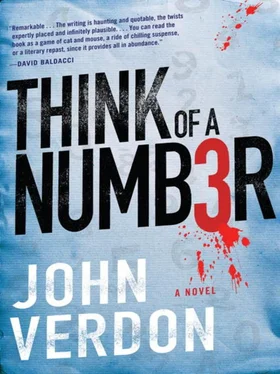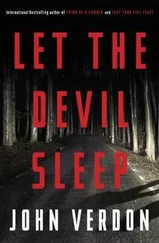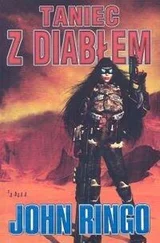Rodriguez frowned.
“Damn!” cried Kline. “This is getting more interesting by the minute. This guy is declaring war.”
“An obvious nutcase,” said Cruise One.
“A smart, ruthless nutcase who wants to do battle with the police.” It was clear that Kline found the implications exciting.
“So what?” said Cruise Two.
“I said earlier that this crime was likely to generate some media interest. Scratch that. This could be the crime of the year, maybe the crime of the decade. Every element of this thing is a media magnet.” Kline’s eyes glittered with the possibilities. He was leaning so far forward in his chair that his ribs pressed against the edge of the table. Then, as suddenly as his enthusiasm had flared, he reined it in, sitting back with a pensive expression-as though a private alarm had warned him that murder was a tragic affair and needed to be treated as such. “The anti-police element could be significant,” he said soberly.
“No doubt about it,” concurred Rodriguez. “I’d like to know if any of the institute’s guests had anti-police attitudes. How about it, Hardwick?”
The senior investigator uttered a single-syllable bark of a laugh.
“What’s so funny?”
“Most of the guests we interviewed rank the police somewhere between IRS agents and garden slugs.”
Somehow, Gurney marveled, Hardwick had managed to convey that this was exactly what he himself thought of the captain.
“I’d like to see their statements.”
“They’re in your in-box. But I can save you some time. The statements are useless. Name, rank, and serial number. Everyone was asleep. No one saw anything. No one heard anything-except for Pasquale Cachese, aka Patty Cakes. Says he couldn’t sleep. Opened his window to get some air and heard the so-called muffled slap-and he guessed what it was.” Hardwick riffled through a stack of papers in his file folder and removed one, as Kline again came forward in his seat. “‘It sounded like someone got popped,’ he said. He said it very matter-of-factly, like it was a sound he was familiar with.”
Kline’s eyes were glittering again. “Are you telling me there was a mob guy present at the time of the murder?”
“Present on the property, not at the scene,” said Hardwick.
“How do you know that?”
“Because he woke Mellery’s assistant instructor, Justin Bale, a young man who has a room in the same building with the guest rooms. Cachese told him he’d heard a noise from the direction of Mellery’s house, thought it might be an intruder, suggested they take a look. By the time they got some clothes on and got across the gardens to the back of the Mellery house, Caddy Mellery had already discovered her husband’s body and gone back inside to call 911.”
“Cachese didn’t tell this Bale person that he’d heard a shot?” Kline was starting to sound like he was in a courtroom.
“No. He told us when we interviewed him the next day. By that time, though, we’d found the bloody bottle and all the obvious stab wounds but no noticeable bullet wounds and no other weapon, so we didn’t pursue the gunshot thing right away. We figured Patty was the kind of guy who might have guns on his mind-that it might be a conclusion he’d jump to.”
“Why didn’t he tell Bale he thought it was a shot?”
“He said he didn’t want to scare him.”
“Very considerate,” said Kline with a sneer. He glanced at the stoic Stimmel seated next to him. Stimmel mirrored the sneer. “If he’d-”
“But he told you,” Rodriguez broke in. “Too bad you didn’t pay attention.”
Hardwick stifled a yawn.
“What the hell was a mob guy doing at a place that sells ‘spiritual renewal’?” asked Kline.
Hardwick shrugged. “Says he loves the place. Comes once a year to calm his nerves. Says it’s a little piece of heaven. Says Mellery was a saint.”
“He actually said that?”
“He actually said that.”
“This case is amazing! Any other interesting guests on the grounds?”
That ironic glint Gurney found so inexplicably distasteful came into Hardwick’s eyes. “If you mean arrogant, infantile, drug-addled nutcases, yeah, there are a fair number of ‘interesting guests’-plus the richer-than-God widow.”
As he pondered, perhaps, the media ramifications of so sensational a crime scene, Kline’s gaze settled on Gurney, who happened to be sitting diagonally across the table from him. At first his expression remained as disconnected as if he were regarding an empty chair. Then he cocked his head curiously.
“Wait a minute,” he said. “Dave Gurney, NYPD. Rod told me who’d be attending this meeting, but the name just registered. Aren’t you the guy New York magazine did the article on a few years back?”
Hardwick answered first. “That’s our boy. Headline was ‘Super Detective.’”
“I remember now,” exclaimed Kline. “You solved those big serial-killer cases-the Christmas lunatic with the body parts, and Porky Pig or whatever the hell his name was.”
“Peter Possum Piggert,” said Gurney mildly.
Kline stared at him with open awe. “So this Mellery guy who got murdered just happens to be the best friend of the NYPD’s serial-murder star?” The media ramifications were obviously getting richer by the minute.
“I was involved to some extent in both cases,” Gurney said in a voice as devoid of hype as Kline’s was full of it. “So were a lot of other people. As for Mellery being my best friend, that would be sad if it were true, considering we hadn’t spoken to each other in twenty-five years, and even back then-”
“But,” Kline interrupted, “when he found himself in trouble, you were the man he turned to.”
Gurney took in the faces at the table, displaying various shades of respect and envy, and marveled at the seductive power of an oversimplified narrative. BLOODY MURDER OF TOP COP’S BUDDY instantly appealed to that part of the brain that loves cartoons and hates complexity.
“I suspect he came to me because I was the only cop he knew.”
Kline looked like he was not ready to let the point go, might revisit it later, but for now was willing to move on. “Whatever your exact relationship was, your contact with the victim gives you a window on the affair no one else has.”
“That’s why I wanted him here today,” said Rodriguez in his I’m-in-charge-here style.
A short hack of a laugh came out of Hardwick’s throat, followed by a whisper that just reached Gurney’s ear: “He hated the idea until Kline liked it.”
Rodriguez went on, “I have him scheduled to give us his statement next and answer whatever questions it raises-which could be quite a few. To avoid interruptions, let’s take five minutes now for a restroom break.”
“Piss on you, Gurney,” said the disembodied whisper, lost amid the sounds of chairs being pushed back from the table.
Questioning Gurney
Gurney had a theory that men behaved in bathrooms as if they were either locker rooms or elevators-which is to say, with either rowdy familiarity or uneasy aloofness. This was an elevator crowd. It was not until they all returned to the conference room that anyone spoke.
“So how did such a modest guy get to be so famous?” asked Kline, grinning with a practiced charm that both concealed and revealed the ice behind it.
“I’m not that modest, and I’m sure as hell not that famous,” said Gurney.
“If everyone will have a seat,” said Rodriguez brusquely, “you’ll each find in front of you a set of the messages received by the victim. As our witness presents his account of his communications with the victim, you can refer to the messages they were discussing.” With a curt nod toward Gurney, he concluded, “Whenever you’re ready.”
Читать дальше












